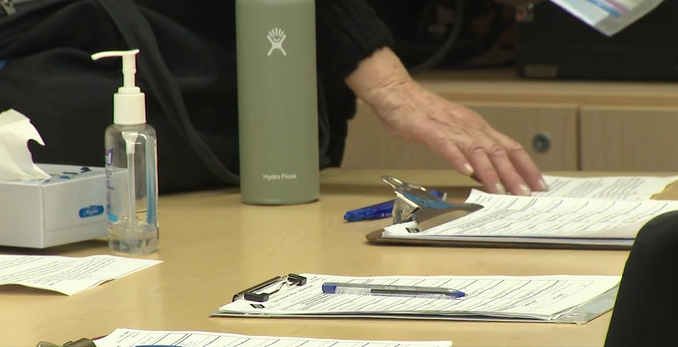Thousands of Canadians fell victim to fraud this year
Posted December 5, 2021 5:00 am.
Last Updated December 5, 2021 10:49 am.
Fraudsters most frequently target the elderly and young people, but they aren’t alone.
According to the Canadian Anti-Fraud Centre, a total of 33,707 reports of fraud were made in this country between Jan. 1 and Sept. 30 of this year.
“Almost 17,000 victims and there was almost $163 million in losses,” said Larry Zelvin, head of the Financial Crimes Unit at BMO Financial Group.
“Most people don’t report this to government, so it’s pretty amazing when you think about how many folks did report and the amount of money we’re talking about so far.”
While Zelvin says fraud is on the rise in general, he explains information is often stolen by online savvy criminals and then used to call, text, or email.
“The main contributing factor is people are home and they’re online and they’re shopping,” he said.
Government financial supports also played a factor, Zelvin adds.
“About a year ago government was giving money to folks. So the fraudsters were chasing those government payments and really making a lot of money doing it.”
Zelvin explains all it takes to become a victim is clicking on a link or opening an attachment.
“Sometimes that’s enough to start the chain of events that leads to fraud,” he said.
Watch for red flags
If you’re browsing online and a company, organization, or website is the only one showing that they have the product in stock, beware, says Zelvin.
Also, if the price is well below what other retailers are offering, pause before you hit purchase. Another red flag is if a seller is asking you to specifically pay with a gift card or debit card.
“When it comes to fraud, the money gets exchanged very quickly so it’s hard to recover, where credit cards we actually have some time advantage if you get to it sooner,” he said.
Furthermore, Zelvin says always be skeptical and cautious.
“If there’s a website you don’t recognize, you’re not sure, there are things like you can check the Better Business Bureau to see if they’re listed, you can check social media, you can google them,” he said.
“It takes a little bit of research but that little bit of time you put in can make the difference between you having a really bad day or having a good one and getting hopefully the deal that you’re looking for.”
Victims of fraud
When it comes to trying to recoup money or assets taken fraudulently from you or someone you know, Zelvin says candid conversations are key.
“Many times these folks feel like they’ve done something wrong, there’s a shame element,” he said.
He suggests reaching out to institutions or banks that you do business with.
“We would so much rather help you when we can than have a conversation after the fact and say ‘gosh I’m sorry too much time has gone by and we can’t recover the money,'” he said.
“When it does happen, the easiest and best way to detect it is by checking your statements often, or what I do is on my credit card and debit card every time it gets used I get a text letting me know that it has been used.”
RCMP initiative
In an effort to help people be safe, the Alberta RCMP is now offering a safe place where goods bought and sold online can be exchanged.
The new Safe Exchange Zone at the Redcliff RCMP Detachment is available anytime, although not monitored by members.
It’s two parking spots, which are well-lit at night, and are located in front of the detachment.
“Meeting an unknown buyer or seller in person has risks,” said Sgt. Al Rivard, commander of the Redcliff Detachment.
“Our new Safe Exchange Zone offers a safer place for individuals to meet and exchange items.”
Redcliff RCMP recommends the following tips to keep yourself safe when exchanging items sold or bought online:
- Conduct transactions during daylight hours
- Meet in a busy public place
- Bring a friend or family with you to witness the transaction
- Retain emails, texts, or voicemails between yourself and the buyer/seller








